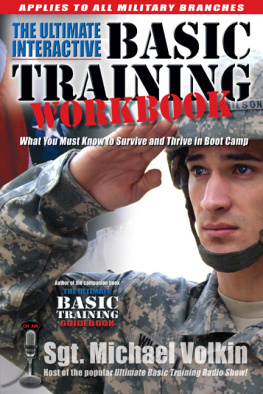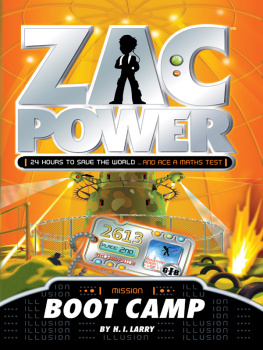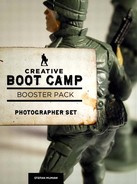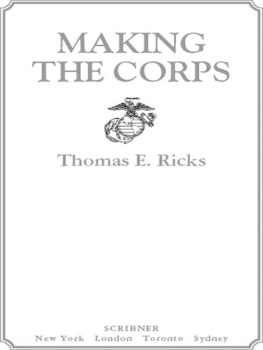Honor,
Courage,
Commitment
Honor,
Courage,
Commitment
Navy Boot Camp
J. F. Leahy
Naval Institute Press  Annapolis, Maryland
Annapolis, Maryland
The latest edition of this book has been brought to publication with the generous assistance of Marguerite and Gerry Lenfest.
Naval Institute Press
291 Wood Road
Annapolis, MD 21402
2002 by J. F. Leahy
All rights reserved. No part of this book may be reproduced or utilized in any form or by any means, electronic or mechanical, including photocopying and recording, or by any information storage and retrieval system, without permission in writing from the publisher.
First Naval Institute Press paperback edition published in 2013.
ISBN: 978-1-61251-372-0
The Library of Congress has cataloged the hardcover edition as follows:
Leahy, J. F.
Honor, courage, commitment : Navy boot camp / J. F. Leahy.
p. cm.
Includes bibliographical references and index.
1. Naval educationUnited States. 2. SailorsTraining ofUnited States. 3. United States. NavyRecruiting, enlistment, etc.
I. Title.
V433.L43 2002
359.50973dc21
2002019761
 This paper meets the requirements of ANSI/NISO Z39.48-1992 (Permanence of Paper).
This paper meets the requirements of ANSI/NISO Z39.48-1992 (Permanence of Paper).
21 20 19 18 1716 15 14 13 9 8 7 6 5 4 3 2 1
First printing
For the Red Ropes past, present, and those to come The Navy and the nation are forever in your debt Keep pushing, shipmates
Contents
Honor, courage, commitmentthese words were adopted by Navy leadership in early 1993 to replace our previous watchwords. This change was made by a group led by the Secretary of the Navy, the Chief of Naval Operations, the Commandant of the Marine Corps, myself, and a dozen other leaders and civilian advisers and was a response to some troubling conduct. In the end there was a general agreement that honor, courage, and commitment were aptly chosen (they had been serving the Marine Corps well for many years already). I agreed to this change, but I left the meeting fully aware that the easy part was done. The really difficult task of making these words truly meaningful to sailors (and therefore to our Navy) lay ahead. In order for them to have real and lasting impact on our Navy these words must be taught with clarity and intensity.
In truth, the previous watchwordsintegrity, tradition, and professionalismhad great potential, but they had never been taught to sailors or even well-publicized in the Navy. Instead they were relegated to the occasional quarterdeck banner or command logo, rarely seen and even more rarely used to inspire, motivate, or provoke sailors to contemplate the importance of naval service and their own personal conduct, both on and off duty. Although these are fine-sounding words with noble connotations, they are, in fact, just words. And as every ethics and values teacher knows, memorizing words isnt enough. To be effective they must be learned in the context of naval heritage and tradition. Jack Leahy has identified one placeRecruit Training Command, popularly known as boot campwhere every waking moment is dedicated toward instilling those values into fifty thousand or more young men and women every year.
Preparing sailors to live and fight at sea in a shore-based training environment has always been challenging and, as Jack Leahys work will make clear to you, it hasnt gotten any easier. Although this book is a recording of the comments of recruits and their trainers with minimal amplifying commentary by Leahy, it illuminates the three main ingredients of the recruit training experience in an honest and straightforward way: recruits, recruit division commanders (RDCs), and the boot camp itselfGreat Lakes Naval Training Center.
I believe recruit training is better now than at any time in my memory. Recruit training works. That it does work is attributable exclusively to RDCs, the Red Ropers. I join in the sentiments contained in Jacks dedication: For the Red Ropespast, present, and those to comethe Navy and the nation are forever in your debt. We are! We have been, and God willing, we always will be.
We were in their debt following Pearl Harbor when, outnumbered and outgunned, sailors demonstrated great valor and sacrifice all across the Pacific, taking fearsome losses, holding the line, remaining outwardly confident of victory through the darkest hours of that conflict. And in October 2000, when young sailorsmost in their teens and early twentiesworking under the most horrific situations imaginable, saved the USS Cole in Yemen. And most recently, we were in their debt in February 2002 when the USS Theodore Roosevelt set the all-time Navy record for continuous time away at sea, launching nearly one hundred long-range air missions every day. We are in their debt today for, as you read this book, young men and womentrained by these recruit division commandersare guarding our freedom somewhere, everywhere, in this troubled world.
No sailor, ever, ever, forgets his boot camp company commander (now RDC). My memories of BM1 Jones (Company 649, San Diego, 1965) are crystal clear these many years later. Known and addressed only as Mr. Jones (in the training style of the day), he was small, wiry, and tough. He was intense and profane. Most impressive, he was omnipresent. He was present at reveille and taps, and every moment in between. There were regular sightings during the mid watch as well. He was, in a salty and perverse kind of way, extremely witty and wise. On one occasion during an outbreak of spinal meningitis we were all given preventive medication daily to take after meals. When BM1 Jones found several of the yellow pills on the head floor he was enraged, and we all began to anticipate the rifle drills or other such punishment in store for us. Instead he made us all take a sheet of stationery and write a brief letter. Beginning Dear Mom and Dad, he dictated a short note on the facts of the meningitis outbreak and the several deaths that had already occurred. His dictation noted that the Navy was conscientiously providing lifesaving medicine to us every day and concluded by informing them that we threw our medicine away instead of taking it as ordered. He had us conclude With love, your son and sign our names. He then collected the letters and stamped the addressed envelopes. He apparently never mailed the letters, but nearly all our mothers received a strange letter we wrote later that night attempting to explain. No more discarded medicine was ever found on the deck.
Strangely, I intensely disliked and feared him, but somehow I respected and trusted him at the same time. These many years later I realize that he was the very epitome of duty and reliability; his commitment to prepare us was beyond doubt. We might not have been happy in his charge, but we learned respect for authority, loyalty to the institution, and the absolute importance of following orders.
In my minds album are many snapshots of boot camp that have not faded over the years. In one, BM1 Jones is marching off with a half dozen other company commanders from our battalion, all in dress uniforms, to take the E-7 examination. That small group departing in military formation was the symbol of all Navy authority and structure for me. While I knew nothing about the advancement system or the near mystical importance of selection to chief, I knew there was something special about that scene. Over the years, all the negative feelings gave way to respect and even affection for BM1 Jones. Wherever you are today, Boatsgood luck and smooth sailing, shipmate.
Next page











 Annapolis, Maryland
Annapolis, Maryland This paper meets the requirements of ANSI/NISO Z39.48-1992 (Permanence of Paper).
This paper meets the requirements of ANSI/NISO Z39.48-1992 (Permanence of Paper).